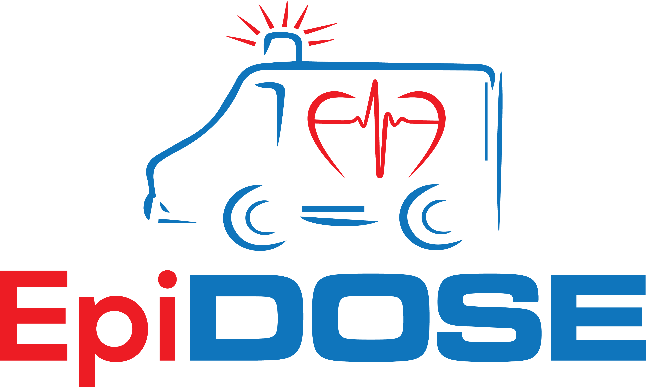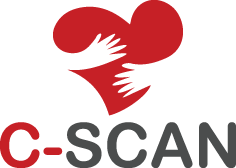There are over ~40,000 cardiac arrests each year in Canada and more than 90% of these people die due to brain death. The brain is especially vulnerable to low oxygen levels during cardiac arrest and brain injury is the final cause of death and disability for many cardiac arrest patients. Cardiopulmonary resuscitation (CPR) helps to pump blood and oxygen to vital organs when the heart has stopped. The goal of CPR has shifted from not only restarting the heart but to improving brain recovery. However, there is no standard method to measure how much blood and oxygen is going to the brain, particularly in real life patients during cardiac arrest.
Our research program is focused on how to evaluate CPR interventions and techniques in preclinical studies. In collaboration with Dr. Vladislav Toronov from Ryerson University, we are developing near-infrared techniques to measure real time brain oxygen levels and brain cell metabolism. Near-infrared spectroscopy (NIRS) may help optimize goal-directed brain resuscitation and individualize patient care during cardiac arrest.
To learn more about this research, check out these publications below:
Nosrati R, Lin S, Ramadeen A, Mohindra R, Toronov V, Dorian P. Study of the effects of epinephrine on cerebral oxygenation and metabolism during cardiac arrest and resuscitation by hyperspectral near-infrared spectroscopy. Crit Care Med. 2019;47(4):e349-e357.
Nosrati R, Lin S, Ramadeen A, Monjazebi D, Dorian P, Toronov V. Cerebral hemodynamics and metabolism during cardiac arrest and cardiopulmonary resuscitation using hyperspectral near infrared spectroscopy. Circ J. 2017;81:879-887.
Lin S, Scales DC. Cardiopulmonary resuscitation quality and beyond: the need to improve real-time feedback and physiologic monitoring. Crit Care. 2016;20(1):182.

Epinephrine (also known as adrenaline) has been used to treat cardiac arrest for more than 50 years. Recently, there have been concerns amongst doctors, nurses, paramedics and patients that epinephrine may be harmful when used during cardiac arrest resuscitation, particularly with higher doses.
The EpiDOSE trial (NCT03826524) is a prospective, multicentre, randomized controlled trial evaluating the effectiveness of a low cumulative dose (up to 2mg) of epinephrine compared to a standard dose (up to 8mg) of epinephrine during resuscitation from ventricular fibrillation (VF) or ventricular tachycardia (VT) in adult out-of-hospital cardiac arrest patients.
The EpiDOSE trial is working in collaboration with the emergency medical services associated with the Canadian Resuscitation Outcomes Consortium (CanROC) and is funded by the Canadian Institutes of Health Research (CIHR). Contact our EpiDOSE research manager, Theresa Aves (theresa.aves@unityhealth.to), if you have any questions or are interested in learning more.
If you are interested in learning more about the EpiDOSE trial and the use of epinephrine in cardiac arrest, check out these publications:
Aves T, Chopra A, Patel M, Lin S. Epinephrine for Out-of-Hospital Cardiac Arrest: A Systematic Review and Meta-Analysis Update. Crit Care Med. 2019. In Press.
Welsford M, Buick JE, Drennan IR, Lin S, Atkinson PR. The CJEM Debate Series: #Epi – There is no place for the use of intravenous epinephrine as a standard component of cardiac arrest resuscitation care. CJEM. 2019;21(3):324-329.
Lin S, Dorian P. Interpreting Observational Data on Adrenaline in Cardiac Arrest is Complicated. Resuscitation. 2019;138:314-315.
Nosrati R, Lin S, Ramadeen A, Mohindra R, Toronov V, Dorian P. Study of the effects of epinephrine on cerebral oxygenation and metabolism during cardiac arrest and resuscitation by hyperspectral near-infrared spectroscopy. Crit Care Med. 2019;47(4):e349-e357.
Lin S, Callaway CW, Shah PS, Wagner JD, Beyene J, Ziegler CP, Morrison LJ. Adrenaline for out-of-hospital cardiac arrest resuscitation: a systematic review and meta-analysis of randomised controlled trials. Resuscitation. 2014;85(6):732-40.
Glover BM, Brown SP, Morrison L, et al. Wide variability in drug use in out-of-hospital cardiac arrest: a report from the resuscitation outcomes consortium. Resuscitation. 2012;83:1324-30.

The overall goal of the Canadian Sudden Cardiac Arrest Network (C-SCAN) is to measure the true scope of sudden cardiac arrest across Canada so that we can enable the prediction and prevention of these events by identifying key symptoms, risk factors, and triggers. Understanding the causes of sudden cardiac arrest (SCA) can lead to better prevention and health outcomes for many Canadians.
C-SCAN is comprised of a national network of scientists, EMS agencies, cardiologists, emergency physicians, epidemiologists, coroners, medical examiners and patients from across Canada. Our methodologies are multi-disciplinary, and our key strategies include patient engagement, integrated knowledge translation and strong mentorship for trainees. Through this exciting initiative we will continue to build the capacity and collaboration of SCA research conducted in Canada.
We will develop projects aimed at reducing the risk of SCA and potential therapies for patients who are at highest risk for SCA. We also aim to increase public awareness and knowledge by broadly sending out information from this project through our partnerships with national organizations.
C-SCAN is a collaboration between the Cardiac Arrhythmia Network of Canada (CANet) and the Canadian Resuscitation Outcomes Consortium (CanROC). C-SCAN is supported by a Strategic Research Grant from CANet, as part of the Networks of Centres of Excellence (NCE). Contact our C-SCAN research manager, Katie Allan (katherine.allan@unityhealth.to), if you have any questions or are interested in learning more. Alternatively, you can visit our website at www.c-scan.org.
If you are interested in learning more about C-SCAN and our cardiac arrest registry studies, check out these publications:
Allan K, Dorian P, Lin S, on behalf of the C-SCAN Investigators. Developing a pan-canadian registry of sudden cardiac arrest: challenges and opportunities. Canadian Journal of Cardiology Open. 2019;1(2):53-61.
Buick JE, Drennan IR, Scales DC, Brooks SC, Byers A, Cheskes S, Dainty KN, Feldman M, Verbeek PR, Zhan C, Kiss A, Morrison LJ, Lin S, on behalf of the Rescu Epistry Investigators. Improving temporal trends in survival and neurological outcomes after out-of-hospital cardiac arrest. Circulation: Cardiovascular Quality and Outcomes. 2018;11(1):e003561.
Allan KS, Morrison LJ, Pinter A, Tu JV, Dorian P, Rescu Epistry I. Unexpected high prevalence of cardiovascular disease risk factors and psychiatric disease among young people with sudden cardiac arrest. JAHA 2018 8(2). DOI: 10.1161/JAHA.118.010330
Landry C, Allan KS, Connelly K, Cunningham K, Morrison LJ, Dorian P. Sudden cardiac arrest during participation in competitive sports. NEJM, 2017 377(2) 1943-53.
Allan KS, Morrison LJ, Pinter A, Tu JV, Dorian P, Rescu Epistry I. “Presumed cardiac” arrest in children and young adults: A misnomer? Resuscitation 2017;117:73-9.
Lin S, Scales DC, Dorian P, Kiss A, Common MR, Brooks SC, Goodman SG, Morrison LJ. Targeted Temperature Management: Exploring the Association Between Processes of Care and Outcomes After Out-of-Hospital Cardiac Arrest. Crit Care Med. 2014;42(12):2565-74.